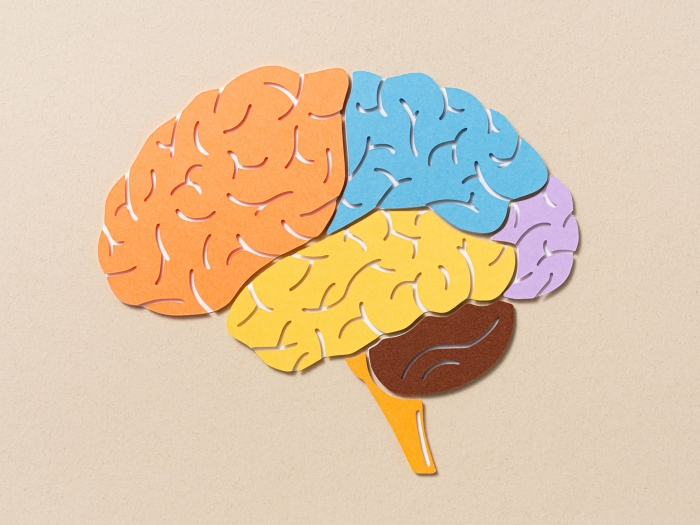People with multiple sclerosis often have trouble with memory, attention and mental processing. New research shows some of these issues could stem from sleep disorders.
8:00 AM
Author |

Multiple sclerosis looks different from person to person. In many individuals, though, the difficulty in maintaining a sense of self and in keeping up intellectually can be the disease's most devastating manifestations.
With this in mind, University of Michigan researchers are exploring a new way to improve cognitive issues, such as memory, attention and mental processing in MS patients: by examining sleep.
People with MS face an elevated risk of obstructive sleep apnea (OSA), a disorder in which the throat collapses during sleep, causing the patient to repeatedly stop breathing for periods of 10 seconds or longer throughout the night. OSA can lead to a decline in mental functioning.
A U-M pilot study published in Sleep is the first to find an association between sleep apnea severity and cognitive dysfunction in patients with MS.
"Since obstructive sleep apnea is a treatable condition that is also commonly seen in MS, we wondered, 'What if some of the thinking and processing difficulties that MS patients experience do not stem directly from the MS itself, but from the effects of sleep apnea or other sleep problems?'" says Tiffany Braley, M.D., M.S., the principal investigator and co-first author of the study, and an assistant professor of neurology at U-M.
MS affects nearly half a million Americans and is the leading non-traumatic cause of neurological disability among young adults.
Braley's team studied 38 adults with MS who had questions about their sleep or cognition. The patients performed seven cognitive tests, which included tasks of word list recall, calculation, and reproducing figures and pictures.
They also spent a night in the Michael S. Aldrich Sleep Disorders Laboratory for polysomnography, an overnight sleep test. Thirty-three of the 38 patients met the criteria for OSA.
"Multiple measures of sleep apnea severity directly correlated with poorer performance on several cognitive tests," said co-first author Anna Kratz, Ph.D., a clinical psychologist and assistant professor of physical medicine and rehabilitation. "In particular, problems with attention and multiple aspects of memory, including memory for words and images, and working memory, which plays a role in problem solving and decision making, were all associated with poorer sleep."
Apnea severity measures accounted for between 11 and 23 percent of the variance in cognitive test performance. The investigators also observed relationships between other sleep quality measures and poor cognitive performance.
"Current MS treatments can prevent further neurological damage, but do little to help existing MS symptoms and damage," Braley says. "Our focus on sleep is part of a larger collaborative initiative to identify previously overlooked but nonetheless treatable conditions that could be affecting patients with MS. Identifying and successfully treating conditions like OSA could help us find new ways to improve the cognitive function in MS."
Identifying and successfully treating conditions like OSA could help us find new ways to improve the cognitive function in MS.Tiffany Braley, M.D., M.S.
Next steps
Now, the researchers will replicate their findings in a larger sample of MS patients, and treat those patients diagnosed with obstructive sleep apnea with positive airway pressure therapy (CPAP), the first-line treatment for OSA. The new clinical trial, led by Braley and funded by the National Multiple Sclerosis Society, will investigate whether cognitive function in MS patients improves when sleep apnea is treated. In the meantime, the investigators want to inspire more conversations in the neurology clinic.
"We hope neurologists will ask their patients with MS about sleep, and the patient should be encouraged to openly discuss sleep concerns with their neurologist," says Neeraj Kaplish, M.D., assistant professor of neurology and medical director of the U-M Sleep Laboratories.
"Given the high prevalence of treatable sleep problems in MS patients, and the fact that many patients with MS rate fatigue as one of their most bothersome symptoms, physicians should have a low threshold to refer MS patients who report sleep disturbances to sleep specialists," says last author Ronald Chervin, M.D., M.S., professor of neurology and director of U-M Sleep Disorders Center.
The research was funded in part by the National Center for Advancing Translational Sciences of the National Institutes of Health, the University of Michigan Sleep Disorders Center and the National Institute of Arthritis and Musculoskeletal and Skin Diseases.
Braley is principal investigator on a clinical trial that receives material, but not financial, support from Biogen. She is site principal investigator for several industry-funded studies of MS immunotherapeutics at the University of Michigan (sponsors include Genzyme-Sanofi and Genentech-Roche), but receives no personal compensation for this work. She is also named in a provisional patent, held by the University of Michigan, concerning treatment for sleep apnea.
Chervin serves on the board of directors for the American Academy of Sleep Medicine and is named in copyrighted material, patents and patents pending, held by the University of Michigan, for sleep apnea and sleep disorder diagnosis, assessment and treatments.

Explore a variety of health care news & stories by visiting the Health Lab home page for more articles.

Department of Communication at Michigan Medicine
Want top health & research news weekly? Sign up for Health Lab’s newsletters today!





